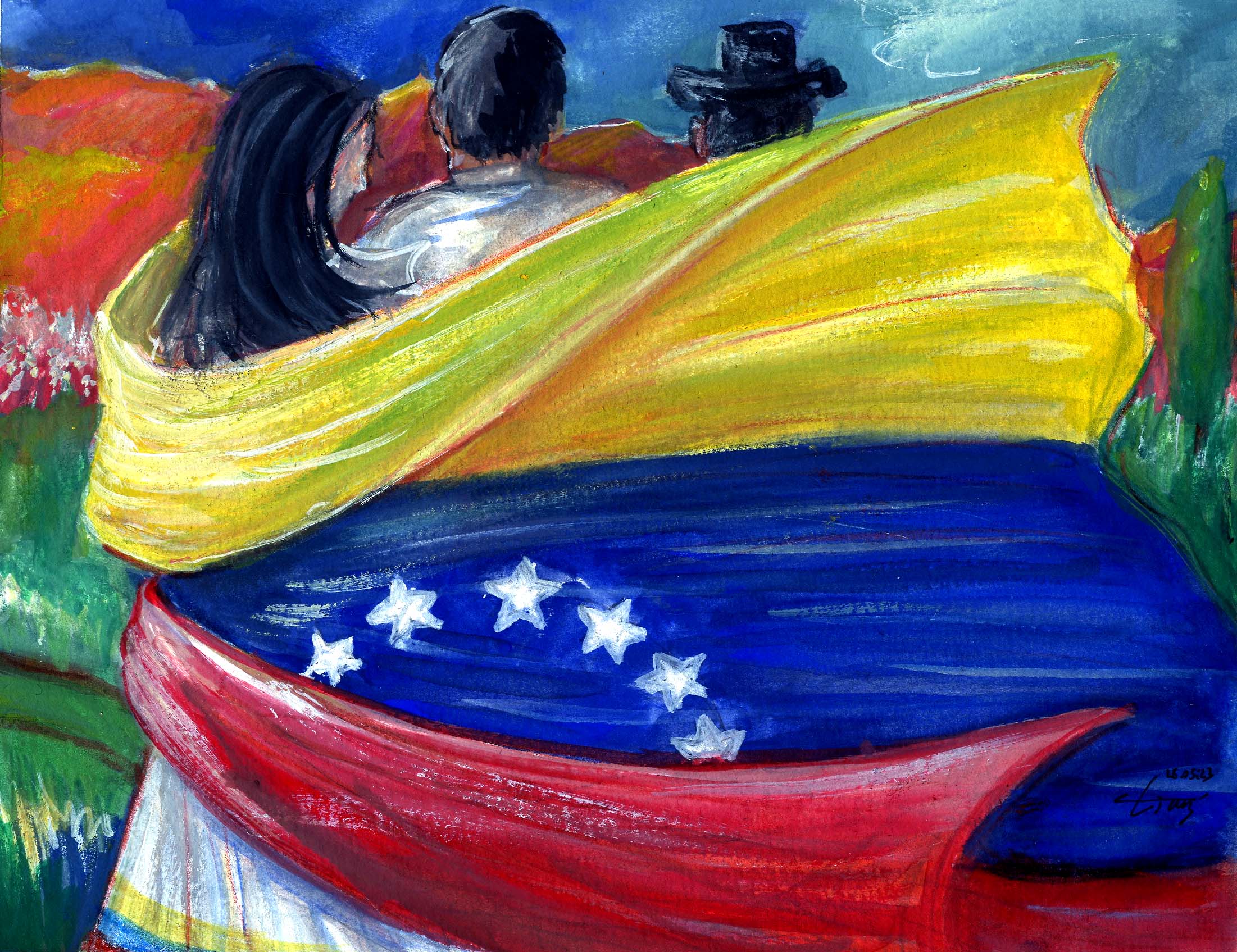The international organisations listed below condemn the lack of transparency in the announced results of Venezuela’s 28 July presidential election. This lack of clarity raises serious questions about the fairness and integrity of the election, leading to widespread doubts about the credibility of the claim that Venezuelans awarded Nicolás Maduro a third presidential term. Given this situation, the international community should insist that Venezuelan authorities immediately ensure and facilitate an independent verification process of the election results.
On 28 July, Venezuelans participated massively and peacefully in the presidential election, demonstrating an inspiring commitment to democratic principles. This occurred despite the electoral process being severely marred by human rights violations and irregularities, including arrests of opposition members, arbitrary disqualifications of opposition candidates, arbitrary restrictions imposed on Venezuelans to vote abroad and young people, and efforts to further restrict civic space. Venezuelans deserve elections where every vote is counted, accurately and transparently.
Based on the right of the Venezuelan people to participate in fair elections, Venezuela’s National Electoral Council (Consejo Nacional Electoral, CNE – in Spanish) should immediately:
- Make available the totality of the tally sheets to all Venezuelan citizens and to national and international election observers as required under Venezuelan law. The CNE should publish the data by state, municipality, parish, voting center, and polling station; and review possible discrepancies in the results of the public tally sheets.
- Complete the electoral audit and citizen verification processes as required by law with the purpose of reconciling the voting receipts with the data registered in the Scrutiny Report issued by each polling station. The audit should be public and the process verifiable.
Until these conditions are met and Venezuelans’ right to transparent information about the electoral process is fulfilled, the international community should refrain from recognising the announced outcome. Governments and international and regional intergovernmental organisations should use every diplomatic tool at their disposal to call on Venezuelan authorities to conduct a fair and transparent vote count that respects the right of Venezuelans to vote in elections “guaranteeing the free expression of the will of the electors” and effectively choose their political future.
Additionally, the Carter Center and the UN Panel of Electoral Experts, as the only international technical observation missions accredited by the CNE, should have access to all the information of the electoral process in order to proceed with their impartial reports in accordance with the memorandums of understanding agreed by each organisation with the Venezuelan authorities.
Failure by Venezuelan authorities to ensure a full and transparent account of the election results, as required by Venezuelan law, risks the loss of vital channels of diplomatic engagement and renewed regional and international isolation, with potentially dire consequences for Venezuelans inside and outside the country.
Between 26 and 29 July, local organisations reported documenting over 130 arbitrary arrests, as well as confirmed and potential unlawful deaths. These arrests have taken place in a context of harassment, persecution, and criminalisation that marked the electoral campaign.
Finally, we call for the immediate release of arbitrarily detained individuals, respect for due process guarantees, and the non-criminalisation of opposition leaders and citizens exercising their right to peaceful protest. We also urge the utmost respect for their rights to freedom of assembly, freedom of expression, liberty, and security of person and to freedom of movement.
Signatories:
- Washington Office on Latin America (WOLA)
- Due Process of Law Foundation (DPLF)
- Robert F. Kennedy Human Rights
- Centre for Justice and International Law (CEJIL)
- CIVICUS
- Global Centre for the Responsibility to Protect (GCR2P)
- Human Rights Watch (HRW)
- International Commission of Jurists
- International Institute on Race, Equality and Human Rights
- International Service for Human Rights
- The World Organisation against Torture (OMCT)
Adherents:
- Apuesta Solidaria AC – México
- Asociación Intercultural de Derechos Humanos (ASIDEHU) – Costa Rica
- Asociación Paz y Esperanza – Perú
- Asociación Pro Derechos Humanos (APRODEH) – Perú
- Asociación Pro-Búsqueda – El Salvador
- Centro de Derechos Humanos Miguel Agustín Pro Juárez – México
- Centro de Estudios de Derecho, Justicia y Sociedad Dejusticia – Colombia
- Centro de Estudios Legales y Sociales (CELS) – Argentina
- Centro de Políticas Públicas y Derechos Humanos – Perú Equidad- Perú
- Centro de Promoción y Defensa de los Derechos Sexuales y Reproductivos (Promsex) – Perú
- Centro Regional de Derechos Humanos y Justicia de Género – Corporación Humanas – Chile
- CISAS – Costa Rica
- CIVILIS – Venezuela
- Colectivo de Derechos Humanos Nicaragua Nunca Más – Nicaragua
- Conectas Direitos Humanos – Brasil
- Consultoría para los Derechos Humanos y el Desplazamiento (CODHES) – Colombia
- Equipo de Reflexión, Investigación y Comunicación – Honduras
- Equipo Jurídico por los Derechos Humanos – Honduras
- Fundación Étnica Integral – Republica Dominicana
- Instituto de Defensa Legal (IDL) – Perú
- Mesa Nacional para las Migraciones y Refugiados en la República Dominicana (MENAMIRD) – República Dominicana
- Movimiento Autónomo de Mujeres – Nicaragua
- Observatorio Venezolano de Prisiones – Venezuela
- Oficina Jurídica para la Mujer – Bolivia
- Plataforma Internacional contra la Impunidad – Guatemala
- Red para la Infancia y la Adolescencia de El Salvador (RIA) – El Salvador
- Tejiendo Redes Infancia en América Latina y el Caribe – Regional
- Vicaría de Derechos Humanos de Caracas – Venezuela




